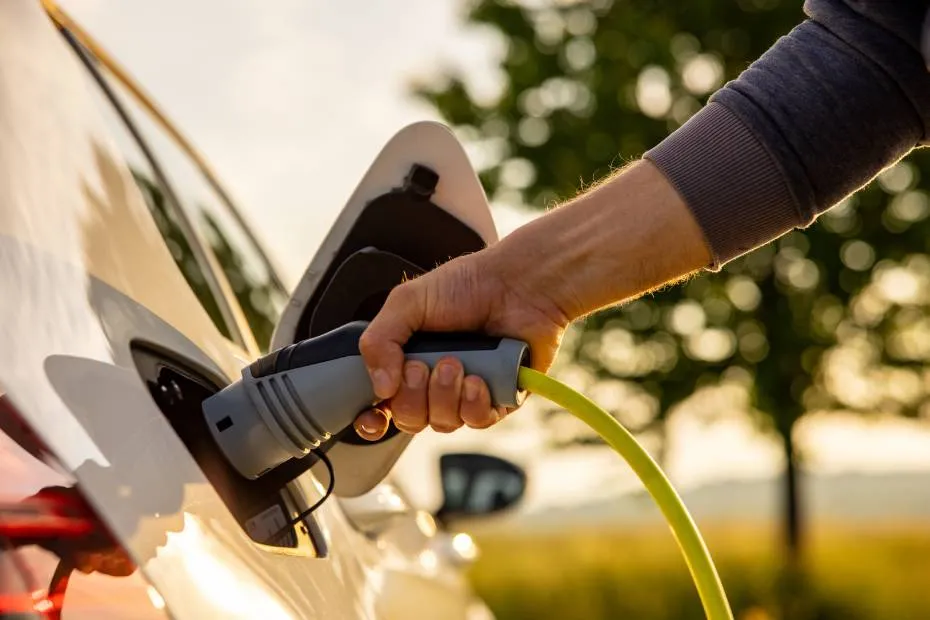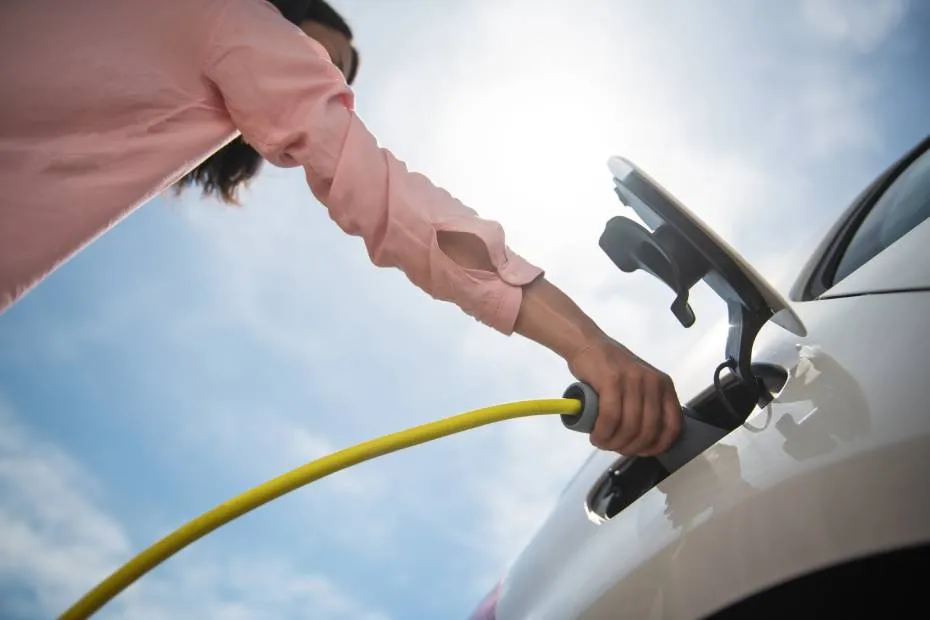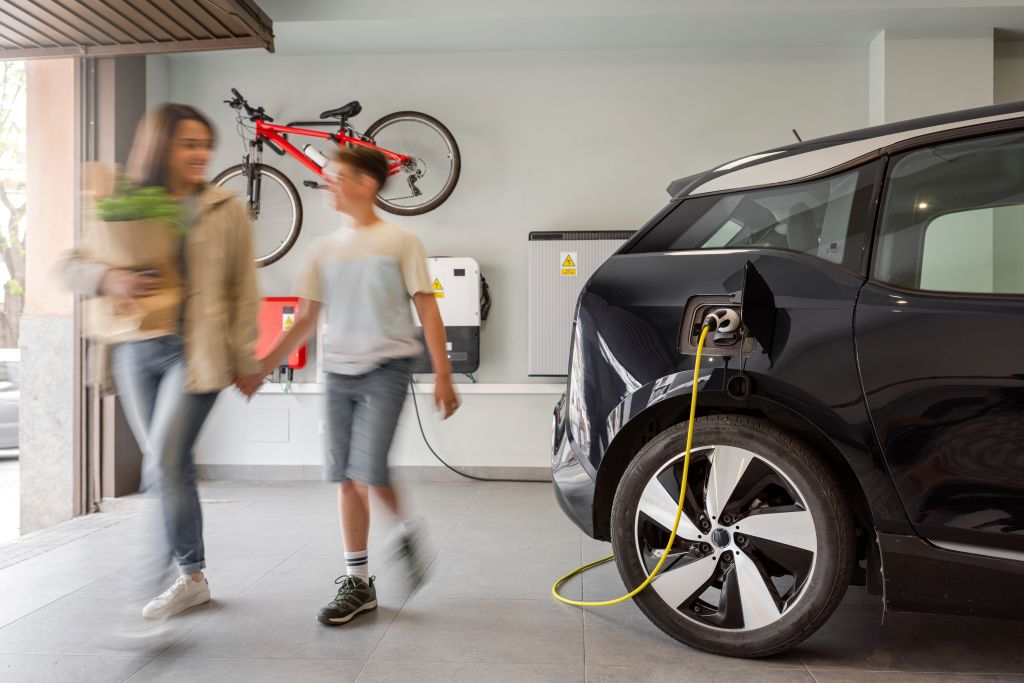Published January 31, 2023 • 5 Min Read
Electric vehicles (EVs) are on the rise in a big way. With a range of models, lower prices, and impressive performance, you might ask if now is the right time to switch from a traditional gas-powered vehicle or buy your first EV.
Below are some questions and answers to consider if you are thinking of buying an EV now.
What is the upfront cost?
The cost of an EV in Canada can range between $32,000 and $160,000, depending on the make and model of the vehicle and the incentives available to you. The Federal Government is offering up to $5,000 in rebates to buy or lease EVs and hybrid vehicles provided the vehicle has a base price no higher than $55,000. Other incentives vary by province, but they can help ease up-front costs. Additionally, there may be other perks. In Ontario, for example, vehicles with green license plates can use High Occupancy Vehicle (HOV) lanes even when driving alone.
You can charge most EVs with a standard outlet (a level 1 charger), but you may want to purchase and install an at-home level 2 charger. According to the Government of Quebec, for example, a charging station plus installation will cost $1,500 on average.
How much does it cost to charge an EV?
You’ll typically spend less to charge your EV than you would to fuel the same-sized gas or diesel vehicle. While many places now have EV fast charge stations, if you charge your EV at home, the average annual cost of electricity is typically only around $300.
Which EV should I buy?
As of 2023, there are more than 90 electric vehicle models for sale in Canada at an average price of $82,000. While Tesla may be the best-known EV brand in the world today, several other manufacturers are providing comparable quality EVs with different price tags.
To view and compare the full list of EVs available in Canada, check out the non-profit Plug’n Drive.
Are electric vehicles really that green?
While they are more environmentally friendly than traditional gas-powered vehicles, EVs still have environmental effects.
Plug-in vehicles depend on electric grids, which, depending on where you are, could come from non-renewable sources like coal, nuclear, natural gas, and petroleum. Therefore, it’s important to know where the electricity comes from and how green it is.
Second, the lithium-ion cells that power most electric vehicles also rely on raw materials like cobalt, lithium and rare earth elements that have all been linked to serious environmental and human rights concerns in mining communities worldwide. The percentage of lithium batteries currently being recycled is quite low. However research is being conducted on the possibility of repurposing used EV car batteries in more environmentally-friendly ways. .
What is the cost of maintenance for an EV?
Fewer moving and wearable parts in EVs mean less maintenance. This can add up to thousands of dollars in savings over your vehicle’s lifetime. However, an electric car is not maintenance-free.
-
EVs still need to be serviced for tire wear and tear, pressure checks, windscreen wiper replacement and brake fluid change, amongst other things.
-
You may need a specialist mechanic, depending on the make and model of your vehicle — be sure to ask your dealer.
-
Electric vehicle batteries will also degrade over time, losing some of their ability to maintain a full charge. You may need to eventually replace the battery pack or trade in the vehicle for a new one.
What’s the EV infrastructure like in Canada?
A common concern among prospective EV buyers is “range anxiety” — the distance you can drive on a fully charged battery before having to recharge. Even with more EVs and hybrids on the road, charging stations are still not as common as gas stations. But government and private investment into EV infrastructure is improving rapidly, with the government of Canada pledging to fund the installation of 50,000 new EV charging stations throughout the country by 2030.
However, it’s important to consider your lifestyle, location and driving habits when planning how and when you’ll charge your vehicle. If you live in a big city and use your car mainly for shorter commutes, you likely won’t need to worry about finding charging stations. But if you live in a smaller, rural town where you need to drive long distances, you may not have such an easy time.
Can I buy a used EV?
For those that want to buy an EV but are perhaps intimidated by the price tag, it may be worth looking for a used EV. While the market is nowhere near as large as used gas-powered vehicles, the supply of used EVs will continue to grow as more vehicles hit the market. In the meantime, it’s important to consider costs, battery longevity and battery replacement in a used EV.
And as another alternative to buying a second-hand EV outright, many dealers will offer finance deals or let you lease a used electric car. Be sure to check the terms carefully so you understand the total amount you’ll need to repay before you own the vehicle outright.
Read next: 7 Questions to Consider Before Buying an Electric Car
This article is intended as general information only and is not to be relied upon as constituting legal, financial or other professional advice. A professional advisor should be consulted regarding your specific situation. Information presented is believed to be factual and up-to-date but we do not guarantee its accuracy and it should not be regarded as a complete analysis of the subjects discussed. All expressions of opinion reflect the judgment of the authors as of the date of publication and are subject to change. No endorsement of any third parties or their advice, opinions, information, products or services is expressly given or implied by Royal Bank of Canada or any of its affiliates.
Share This Article







